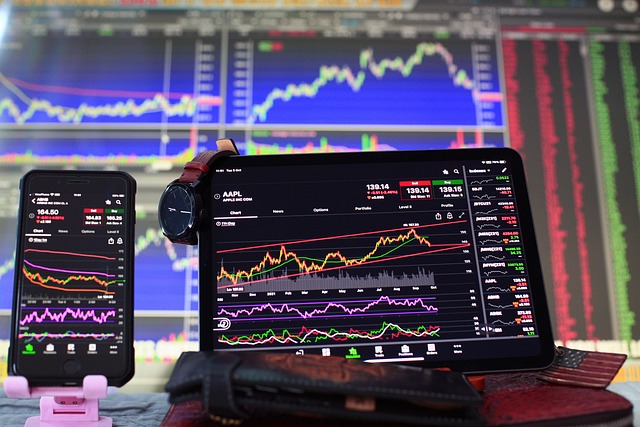The Rise of AI Trading Bots: Revolutionizing Financial Markets
In recent years, the development of artificial intelligence (AI) has permeated various sectors, and the trading industry is no exception. AI trading bots have emerged as sophisticated tools that can analyze vast amounts of data, execute trades at lightning speed, and ultimately shape market movements. But what exactly are these AI trading bots, and how are they transforming the landscape of trading? In this article, we will delve into the intricacies of AI trading bots, explore their functionalities, advantages, challenges, and provide insightful opinions about their future in trading.

Understanding AI Trading Bots
At the core of AI trading bots is the ability to analyze complex datasets. Powered by machine learning algorithms and statistical models, these bots utilize vast amounts of historical data coupled with real-time market information to formulate trading strategies. They can identify patterns, predict market trends, and make trading decisions autonomously. As we explore further, we will look into their functionalities, benefits, and the technical aspects that define them.
How AI Trading Bots Operate
AI trading bots operate through a combination of data processing, algorithmic trading strategies, and execution mechanisms. Here’s a breakdown of each element:
Data Processing
Algorithmic Trading Strategies
Execution Mechanism
AI-driven trading bots scrape and analyze vast amounts of data from multiple sources, including historical price charts, news articles, and social media sentiment analysis. The ability of these bots to process and analyze data at scale gives them a significant edge over traditional traders.
Once the data is processed, AI bots utilize various algorithmic trading strategies. These might include trend-following, arbitrage, mean reversion, and statistical arbitrage strategies. Each strategy is designed to capitalize on specific market conditions, helping traders optimize their returns.
After formulating strategies, the AI trading bot executes trades instantaneously through integrated trading platforms. The execution speeds can often be attributed to the low latency technology employed, allowing the bots to react to market fluctuations faster than human traders could ever manage.
Benefits of AI Trading Bots
AI trading bots bring a plethora of advantages to the trading landscape. However, I believe it's crucial to weigh these benefits against potential drawbacks to paint a comprehensive picture. Here are some of the key benefits:
1. Enhanced Decision Making
AI trading bots analyze data and derive insights leading to informed decision-making. They utilize sophisticated algorithms that can identify profitable trades based on factual data rather than emotional reactions. I find this aspect particularly intriguing, as humans, by nature, can be swayed by emotions like fear or greed, which often lead to irrational trading decisions.
2. 24/7 Market Monitoring
AI trading bots can watch the market continuously, providing an advantage over traditional traders who may need to rest or step away. This ceaseless vigilance ensures no profitable opportunities are missed. From my perspective, this aspect is one of the strongest arguments for adopting AI in trading—especially in volatile markets where timely decision-making is crucial.
3. Elimination of Human Error
Human error remains a significant factor in trading failures. Whether it’s executing a trade at the wrong time or miscalculating risk, these mistakes can be costly. AI trading bots mitigate this risk. I wish more traders understood the importance of relying on technology to minimize errors, as history has shown us that human follies can be catastrophic in the high-stakes world of trading.
4. Customization and Optimization
AI trading bots can be tailored to meet specific trading preference and risk tolerance. Traders can fine-tune the algorithms, adjusting parameters to match their strategies and goals. In my opinion, the ability to customize these bots allows traders to find a balance between automation and personal touch that makes them feel more in control.
Challenges Facing AI Trading Bots
Despite their many advantages, AI trading bots face several challenges that must be addressed to fully harness their potential in financial markets. Here are a few critical issues:
1. Market Volatility
AI models that rely on historical data may struggle in highly volatile markets. Extreme events can disrupt established patterns, causing AI bots to malfunction or execute poor trades. This leads me to believe that while AI can provide insights, human oversight remains essential, particularly during turbulent periods.
2. Overfitting the Model
A common pitfall in AI modeling is overfitting, where the algorithm learns the training data too well, including noise and outliers. This can lead to poor performance in real-world trading scenarios, as the model fails to generalize. Traders should invest time in validating and stress-testing their models to ensure robustness and adaptability.
3. Regulatory Concerns
With the increasing adoption of AI in trading, regulatory bodies are analyzing the impact of these technologies. Ensuring compliance with trading regulations while utilizing AI can be complex. In my opinion, a clear regulatory framework is crucial for fostering innovation while protecting traders and maintaining market integrity.
4. Ethical Considerations
As AI trading bots become more dominant, ethical considerations about their usage come to the forefront. Issues such as market manipulation, unfair advantages over retail traders, and algorithmic biases must be addressed. It's essential for the trading community to create ethical guidelines that govern the use of trading bots, ensuring a fair playing field for all participants.

The Future of AI Trading Bots
As we consider the future of AI trading bots, it’s essential to recognize that these technologies are still evolving. Here are some predictions I have based on current trends:
1. Increased Adoption and Integration
The integration of AI trading bots into financial institutions and trading platforms will continue to escalate. More institutional investors will likely leverage these tools for enhanced trading efficiency, ultimately affecting market dynamics profoundly.
2. Advancements in Technology
As AI technology advances, we can expect trading bots to become more sophisticated, analyzing sentiment, alternative data sources, and even employing natural language processing to extract insights from news articles, financial reports, and social media. I believe this shift will expand the trading landscape significantly, propelling retail traders to compete more effectively with institutional players.
3. Collaboration Between Humans and Algorithms
Rather than replacing human traders, AI trading bots will likely serve as collaborative tools that augment human decision-making in trading. While the bot handles data processing and execution, human traders will provide the context and strategic direction, ultimately fostering a more symbiotic relationship.
4. Focus on Ethical AI Trading
As AI trading becomes more ubiquitous, there will be a growing emphasis on ethical practices in AI trading. Regulatory bodies and industry participants will likely work towards establishing guidelines that promote responsible use and fair practices. Personally, I see this as a crucial development; setting ethical standards will help ensure a sustainable trading environment where technology does not overshadow human values.
Conclusion
AI trading bots are here to stay, ushering in a new era in trading. Their capacity to process data, execute trades rapidly, and minimize human errors marks a significant advancement over traditional trading methods. However, as with any technology, embracing AI bots in trading must come with a balanced approach, remaining cognizant of their limitations and potential consequences.
As we move forward, the combination of technological enhancement and ethical considerations will define the future of trading. The potential for AI trading bots is vast, and their integration with human expertise will ultimately determine how effectively they can navigate the complexities of financial markets. I am optimistic about this future and believe that with responsible usage, traders can leverage AI bot technology to create more efficient, fair, and responsible trading practices.